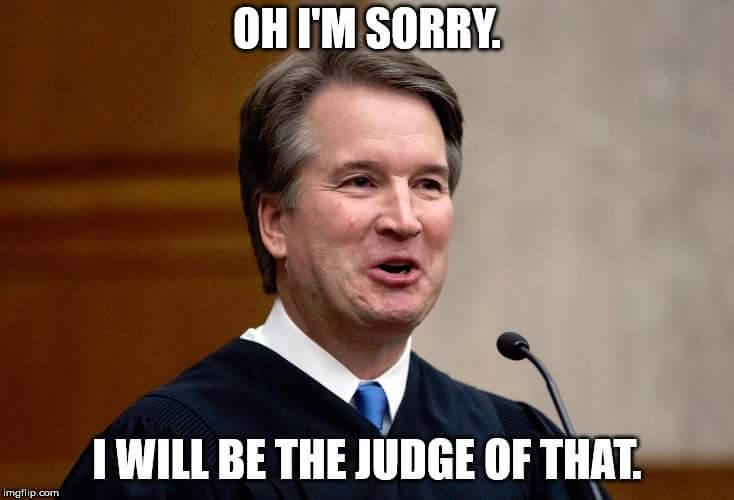It looks like you're using an Ad Blocker.
Please white-list or disable AboveTopSecret.com in your ad-blocking tool.
Thank you.
Some features of ATS will be disabled while you continue to use an ad-blocker.
share:
a reply to: RelSciHistItSufi
Oh I know how to do it
I just don't have it on my phone .
Also I don't feel like playing
We have been playing for a long time!
WANT MUH RESULTS!
Oh I know how to do it
I just don't have it on my phone .
Also I don't feel like playing
We have been playing for a long time!
WANT MUH RESULTS!
a reply to: Creep Thumper
It's a convoluted process to upload here!
Here are instructions that are pretty clear:
www.abovetopsecret.com...
It's a convoluted process to upload here!
Here are instructions that are pretty clear:
www.abovetopsecret.com...
a reply to: Creep Thumper
I think he is ALWAYS prepared though his demeanor may sometimes suggest otherwise, behind the curtain there is much more than we even could imagine.
Reminds me of my best friend's stepfather growing up.
He couldn't figure out directions and would call his wife from a parking garage because he was lost.
Meanwhile a business GENIUS. He created ICG gas and was an owner of the Winnipeg Jets, back in the day.
Hostile take overs of companies and negotiation skills like nobody's business.
You would never know it just to talk to him!
I think he is ALWAYS prepared though his demeanor may sometimes suggest otherwise, behind the curtain there is much more than we even could imagine.
Reminds me of my best friend's stepfather growing up.
He couldn't figure out directions and would call his wife from a parking garage because he was lost.
Meanwhile a business GENIUS. He created ICG gas and was an owner of the Winnipeg Jets, back in the day.
Hostile take overs of companies and negotiation skills like nobody's business.
You would never know it just to talk to him!
originally posted by: tiredoflooking
a reply to: Creep Thumper
It's a convoluted process to upload here!
Here are instructions that are pretty clear:
www.abovetopsecret.com...
Here I thought we could hotlink.
Interesting tidbit from history. President(precedent). Though not quite the same as today, the military was used to reestablish the rule of law.
Abraham Lincolns conspirators were tried in a military commission, not the civilian judiciary.
Today, the attack upon our President, is virtually identical, except he is still alive! Th attack upon our president is, a attack upon the United States of America!
The Trial of the Lincoln Assassination Conspirators: An Account
I believe I have now seen the "Plan" and I find it frightening but at the same time absolutely necessary.
I am frightened that someone will attempt something similar to what Happened to Abraham, or, SCOTUS.
Is the SCOTUS really required?
The main difference in "enemies" is they operate from within, without uniforms. None the less, enemies of our Constitution, and way of life.
The President(precedent), is already there. It should have been used for the Assassination of JFK because unknown to all of us, and as JFK pointed out himself in the "Secret Societies" speech, we were at war then!!!
Gods Speed Q, Gods Speed.
Abraham Lincolns conspirators were tried in a military commission, not the civilian judiciary.
Secretary of War Edwin Stanton favored a quick military trial and execution. According to Secretary of Navy Gideon Welles, who favored trial in a civilian court, Stanton "said it was intention that the criminals should be tried and executed before President Lincoln was buried." (Lincoln was buried on May 4, before the start of the conspiracy trial.) Edward Bates, Lincoln's former attorney general, was among those objecting to a military trial, believing such an approach to be unconstitutional. Understanding the use of a military commission to try civilians to be controversial, President Johnson requested Attorney General James Speed to prepare an opinion on the legality of such a trial. Not surprisingly, Speed concluded in his opinion that use of a military court would be proper. Speed reasoned that an attack on the commander-in-chief before the full cessation of the rebellion constituted an act of war against the United States, making the War Department the appropriate body to control the proceedings
Today, the attack upon our President, is virtually identical, except he is still alive! Th attack upon our president is, a attack upon the United States of America!
The Trial of the Lincoln Assassination Conspirators: An Account
I believe I have now seen the "Plan" and I find it frightening but at the same time absolutely necessary.
I am frightened that someone will attempt something similar to what Happened to Abraham, or, SCOTUS.
Is the SCOTUS really required?
President Johnson requested Attorney General James Speed to prepare an opinion on the legality of such a trial. Not surprisingly, Speed concluded in his opinion that use of a military court would be proper.
The main difference in "enemies" is they operate from within, without uniforms. None the less, enemies of our Constitution, and way of life.
The President(precedent), is already there. It should have been used for the Assassination of JFK because unknown to all of us, and as JFK pointed out himself in the "Secret Societies" speech, we were at war then!!!
Gods Speed Q, Gods Speed.
edit on PMFridayFriday thAmerica/ChicagoAmerica/Chicago55102 by All Seeing Eye because: (no reason given)
a reply to: All Seeing Eye
Oh boy, do I agree with that.
In my view, any domestic hostilities against the President that break the law should be dealt with via military tribunal due to the fact he is C-In-C of the military.
Oh boy, do I agree with that.
In my view, any domestic hostilities against the President that break the law should be dealt with via military tribunal due to the fact he is C-In-C of the military.
Eevverybody is coding things today.
Arghh now is the time to proceed to MOAR WINNING!
Anybody have any ideas on this one? The video is of Trump with, looks like a napkin, stuck to his foot.

twitter.com...
Arghh now is the time to proceed to MOAR WINNING!
Anybody have any ideas on this one? The video is of Trump with, looks like a napkin, stuck to his foot.

twitter.com...
Breaking...
Maine Senator Collins just said she will vote yes to confirm Kavanaugh !!!!!
On the Senate floor, she set the record staraight and called out all the BS as BS.
Very strong speech from Senator Collins.
😎🥁😎
Maine Senator Collins just said she will vote yes to confirm Kavanaugh !!!!!
On the Senate floor, she set the record staraight and called out all the BS as BS.
Very strong speech from Senator Collins.
😎🥁😎
a reply to: liveandlearn
Im at work.
My coworkers They started discussing Q
Wich in itselfs is kinda awsome. Im in iceland.
Ofcoarse they were making fun and laughing. That jim jeffries clip is pretty funny.
Still i couldnt engage. The look of disbelieve i get when i mumble the words trump is kinda astounding.
Cant f*n wait for the tsunami to burst.
Warror..mindblown! Everybody in this thread is in your debt.
Stay safe brother.
Im at work.
My coworkers They started discussing Q
Wich in itselfs is kinda awsome. Im in iceland.
Ofcoarse they were making fun and laughing. That jim jeffries clip is pretty funny.
Still i couldnt engage. The look of disbelieve i get when i mumble the words trump is kinda astounding.
Cant f*n wait for the tsunami to burst.
Warror..mindblown! Everybody in this thread is in your debt.
Stay safe brother.
a reply to: samuelsson
I feel you bro, in Britain. People look at you with sheer horror if you say you support what Trump's doing. But I'm a pretty loud chap so I don't let that stop me!
I feel you bro, in Britain. People look at you with sheer horror if you say you support what Trump's doing. But I'm a pretty loud chap so I don't let that stop me!

t.co...
I say I don't want to play but really I do.
Some discoveries so far about the quest for clues in article.
AnonScan's post is Assange's code from last December
And has a link to paper planes same as Assange's December tweet.
Why the paper shoe vid?
Carry on Qsters.
I really hope a free Assange making a News Conference about the DNC murdering Seth Rich is the October surprize!
I don't dare discuss Q and Trump with anyone but my little sister.
People absolutely lose their minds around me in places like the grocery store. I hear them talking.
In my opinion, this is an excellent example of the mass hysteria phenomenon.
Really REALLY incredible dynamic.
People absolutely lose their minds around me in places like the grocery store. I hear them talking.
In my opinion, this is an excellent example of the mass hysteria phenomenon.
Really REALLY incredible dynamic.
new topics
-
Potter to WHU
World Sports: 2 hours ago -
Dr. Demento
Music: 4 hours ago -
The elephant in the room (wearing a hoodie)
US Political Madness: 4 hours ago -
To become president, Zelensky had to learn Ukrainian
Political Conspiracies: 10 hours ago
top topics
-
Green Grapes
General Chit Chat: 14 hours ago, 6 flags -
To become president, Zelensky had to learn Ukrainian
Political Conspiracies: 10 hours ago, 6 flags -
The elephant in the room (wearing a hoodie)
US Political Madness: 4 hours ago, 6 flags -
Dr. Demento
Music: 4 hours ago, 2 flags -
Potter to WHU
World Sports: 2 hours ago, 1 flags
active topics
-
Los Angeles brush fires latest: 2 blazes threaten structures, prompt evacuations
Mainstream News • 128 • : marg6043 -
Mood Music Part VI
Music • 3780 • : underpass61 -
Russia Ukraine Update Thread - part 3
World War Three • 6906 • : Imhere -
Post A Funny (T&C Friendly) Pic Part IV: The LOL awakens!
General Chit Chat • 8006 • : underpass61 -
Dr. Demento
Music • 6 • : mysterioustranger -
To become president, Zelensky had to learn Ukrainian
Political Conspiracies • 16 • : DontTreadOnMe -
The elephant in the room (wearing a hoodie)
US Political Madness • 11 • : Xtrozero -
Planned Civil War In Britain May Be Triggered Soon
Social Issues and Civil Unrest • 28 • : BedevereTheWise -
My personal experiences and understanding of orbs
Aliens and UFOs • 40 • : ufoorbhunter -
Trump says ownership of Greenland 'is an absolute necessity'
Other Current Events • 67 • : xuenchen

